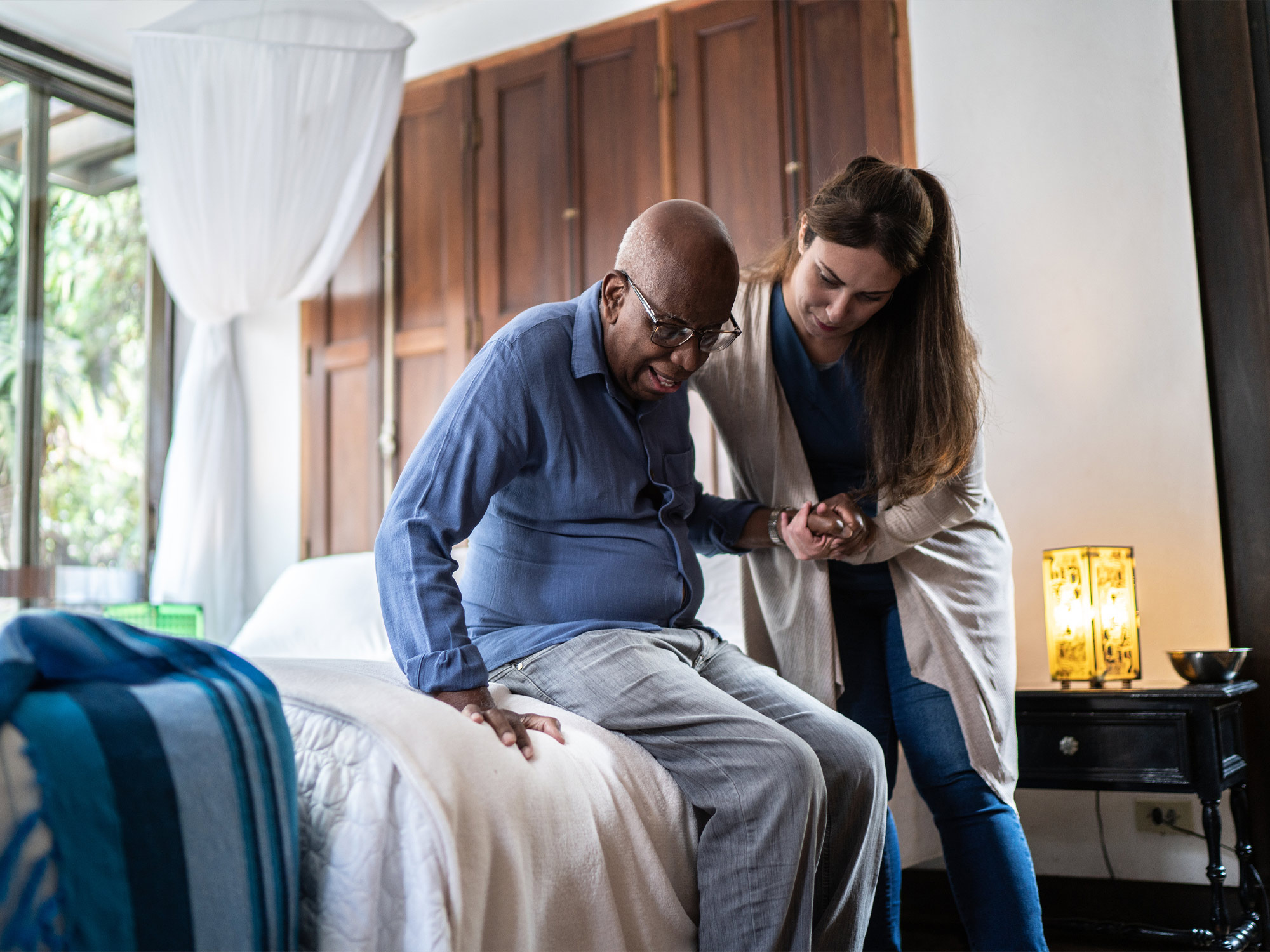As we age, it’s normal to need assistance with activities of daily living. Assisted living can be a great solution for seniors who need help with daily tasks, but don’t require round-the-clock care. When considering assisted living for an aging parent, cost may be a key deciding factor, and you may find yourself asking the question: “Does Medicare pay for assisted living?” Our expert guide is here to help answer this and more related questions to help you make an informed decision about your loved one’s care.
Medicare Coverage Basics
Medicare is a federal health insurance program that’s available for people aged 65 and older, although certain younger individuals with disabilities or specific medical conditions may also qualify.

What Is Assisted Living And How Much Does It Cost?
Assisted living is a form of senior living designed to provide support and assistance for older individuals who may need help with activities of daily living, such as bathing, dressing, medication management and meal preparation, but do not require specialized care or round-the-clock monitoring.
According to Genworth’s 2021 Cost of Care Survey, the average monthly cost of assisted living is about $4,300. However, assisted living costs can vary widely depending on several key factors, like location, the level of care needed, your loved one’s taste, preferences and more. These costs typically include three meals a day, assistance with activities of daily living and access to the community’s services and amenities.
Will Medicare Pay For Assisted Living?
Understanding the relationship between Medicare and assisted living may help you plan for your loved one’s care. Many caregivers may find themselves asking questions like, “Does Medicare pay for assisted living?”
Typically, Medicare doesn’t cover the costs associated with assisted living, including room and board. These expenses are normally paid out of pocket by the individual or their family. While your loved one may qualify for financial assistance through Medicaid or other programs, Medicare alone can’t be used as a primary source of funding for assisted living costs. Medicare Part B may cover some medically necessary services, which we’ll explain a little later in this blog.

How To Pay For Assisted Living
Paying for assisted living costs can be a significant financial undertaking. Fortunately, there are several potential ways to cover these expenses, including:
- VA benefits: If your loved one is an eligible veteran, the Department of Veterans Affairs (VA) may help cover their assisted living costs and other long-term senior care expenses.
- Long-term care insurance (LTCI): Some long-term care insurance policies can help pay for assisted living by providing coverage for services not typically covered by health insurance or Medicare. However, coverage may vary by policy, so it’s important to review policy details, including coverage limits, waiting periods and benefit periods, to determine eligibility and coverage options.
- Private funds: Depending on available resources, private funds, such as personal savings or investments, can be used to pay for assisted living services.
- Medicaid: Medicaid may also provide financial assistance for assisted living services for eligible individuals with limited income and assets. However, Medicaid’s eligibility criteria can vary significantly from state to state, so be sure to contact your local Medicaid office for more information.
Find Out How Much Assisted Living Costs In Your Area
Understanding assisted living costs is crucial when planning for a loved one’s care. However, costs can vary significantly depending on several key factors. Whether you’re considering assisted living for the first time or exploring options for an aging parent, it’s important to know the financial commitment involved.
Our calculator tool is designed to help you estimate the cost of assisted living in your area — so you can make an informed decision that aligns with your specific care needs and budget.
Navigating Medicare For Assisted Living
You might be wondering, how much does Medicare pay for assisted living? And, does Medicare Part B pay for assisted living? While Medicare Part A may cover certain skilled nursing costs for a limited time under specific circumstances, such as after a hospital stay, it does not generally cover long-term care costs.
However, Medicare Part B may cover the costs of medically necessary services and supplies provided in assisted living, such as doctor visits, outpatient care and some home health services. These services must be deemed medically necessary and ordered by a health care provider to be covered by Medicare Part B.
Is Assisted Living Right For Your Loved One?
As our parents age, it’s natural for their needs to change. Sometimes, they may require more help than we can provide at home. This can be a challenging realization, but it’s essential to acknowledge that ensuring their safety and well-being is a top priority. Here are some signs that assisted living might be the right fit for your loved one:
- Increasing care needs: When your loved one starts to require assistance with tasks such as bathing, dressing, medication management or mobility, it may be time to consider assisted living.
- Safety concerns: If safety concerns have become a significant worry for you and your aging parent, assisted living can provide a comfortable and secure environment for them.
- Social isolation: Social isolation can have a significant impact on an aging loved one’s mental and emotional well-being. If your loved one is feeling lonely or isolated at home, an assisted living community can offer opportunities for socialization, companionship and participation in group activities and events.
- Caregiver stress and burnout: Caring for an aging parent can be an incredibly rewarding experience. However, the daily demands of caregiving duties can get overwhelming over time. If you or other family caregivers are feeling overwhelmed, stressed or burned out from providing care, it may be time to consider assisted living.
StoryPoint Group Communities: With You Every Step Of Your Journey
At StoryPoint Group, we understand that transitioning your loved one into a senior living community can be an emotional journey. This is normal, and you’re not alone — we’re here to support you. Our vibrant communities strive to provide a nurturing environment where your loved one can thrive. If you have any questions about assisted living or senior living communities, contact us or give us a call today at 1-844-275-9990.












